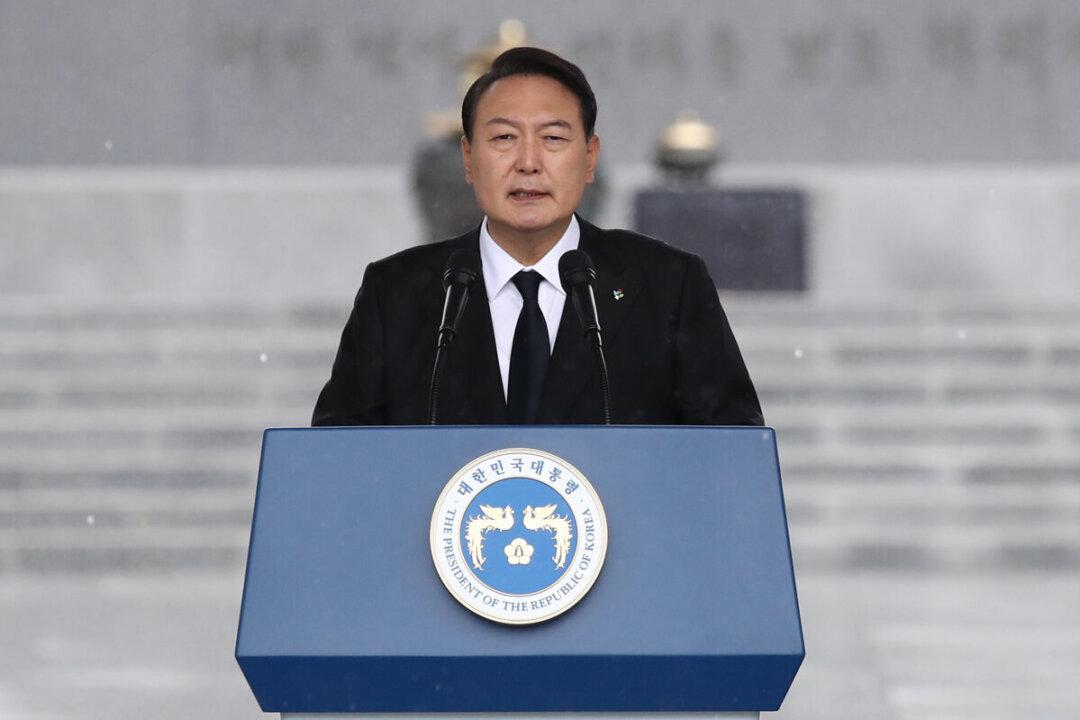The president of South Korea has criticized the military’s response after it failed to shoot down any of the five North Korean drones that violated its airspace on Monday.
“Yesterday, North Korea’s military drones invaded our airspace. The incident showed a substantial lack of our military’s preparedness and training for the past several years, and clearly confirmed the need for more intense readiness and training,” President Yoon Suk-yeol said during a meeting on Tuesday.





